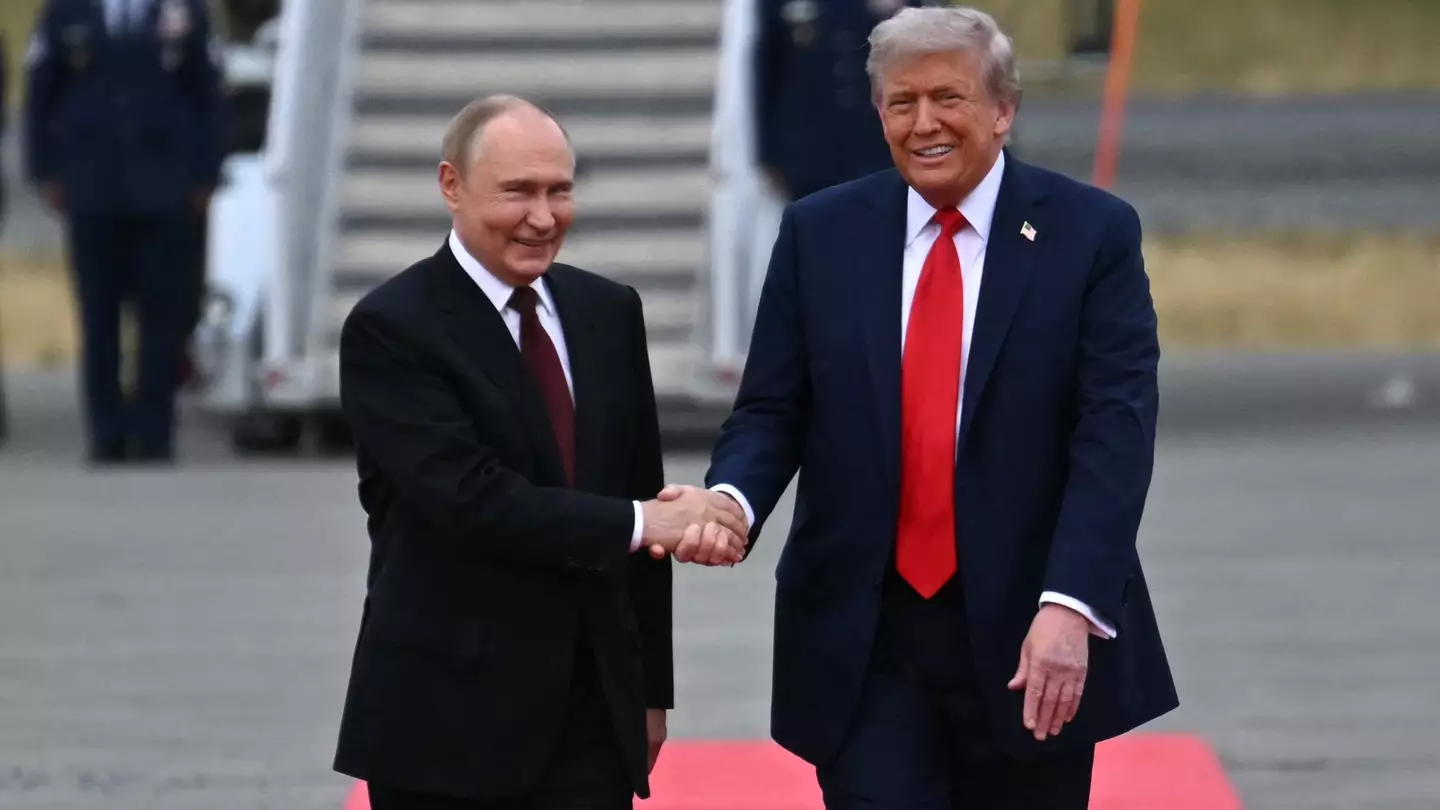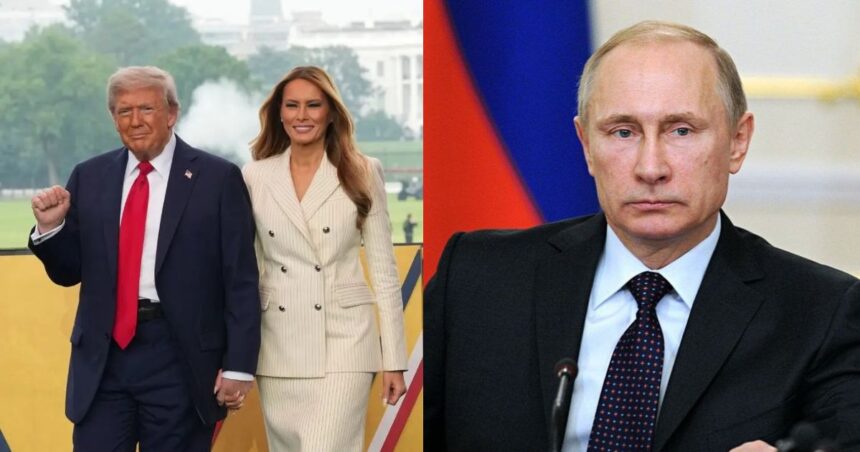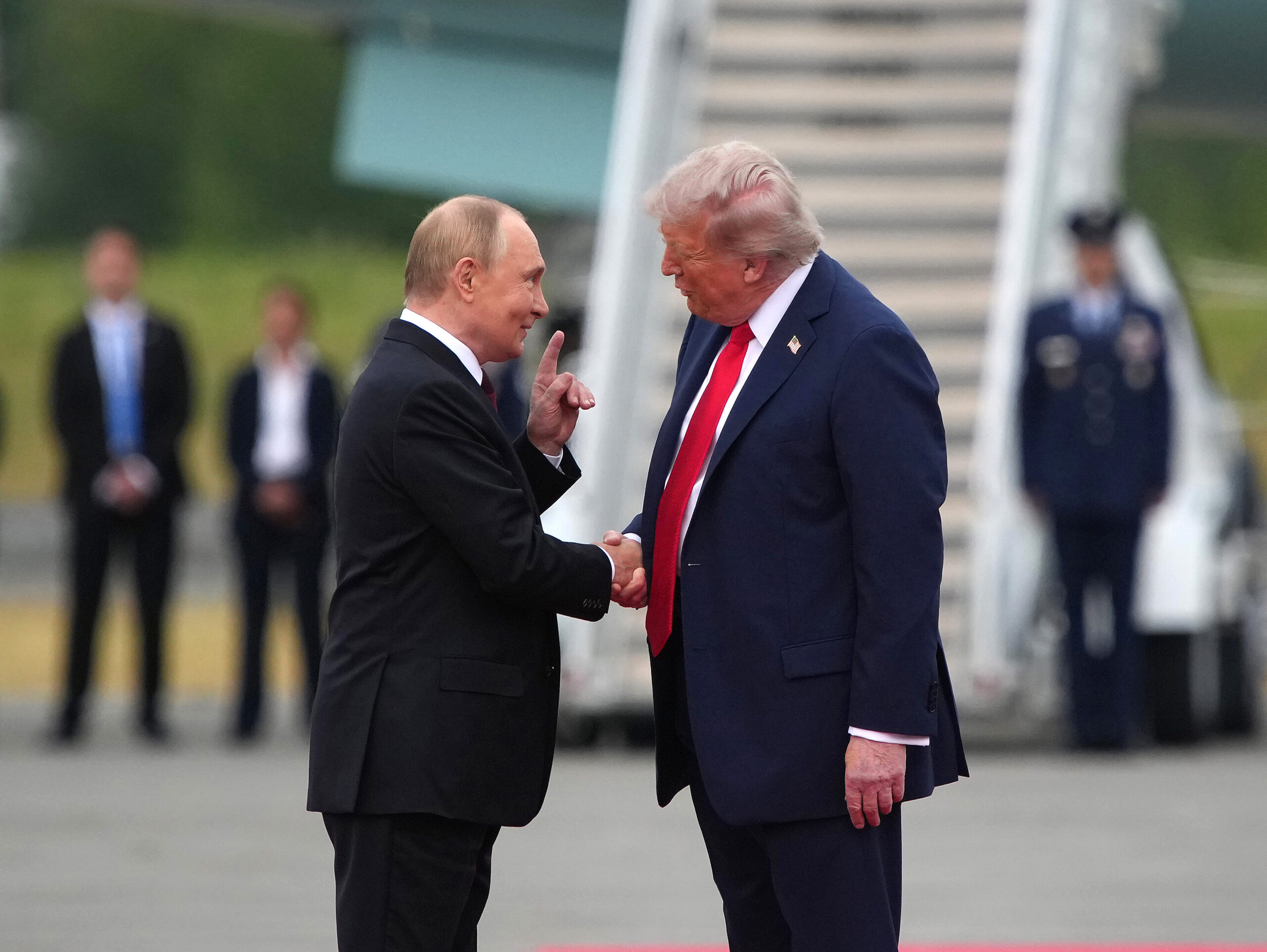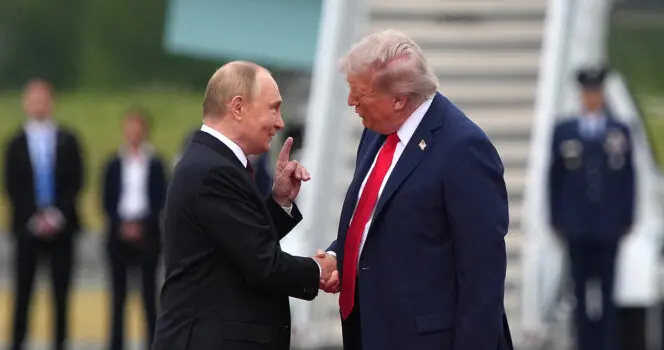Former U.S. President Donald Trump revealed the contents of a letter written by former First Lady Melania Trump, which he personally delivered to Russian President Vladimir Putin during their summit in Alaska. The meeting, focused on exploring possibilities for a ceasefire in Ukraine, attracted global attention as it marked one of the most high-profile diplomatic exchanges of the year【AP†source】【BBC†source】.
Background: The Alaska Summit
The Alaska talks were convened amid ongoing international pressure to halt the war in Ukraine, now in its fourth year since Russia launched its full-scale invasion in February 2022【UN Security Council†source】. The summit was significant not only because it brought together Trump and Putin in person but also because Ukrainian representatives were notably absent from the negotiating table.
According to the United Nations and NATO leaders, Ukraine must be directly involved in any settlement that affects its sovereignty and borders【NATO†source】. However, Trump defended his approach, insisting that opening bilateral channels with Russia could “unlock” progress before wider discussions.
While no ceasefire agreement was reached, Trump declared afterward that “great progress” had been made, echoing earlier statements from his envoys that several “key ingredients” for peace had been discussed【CNN†source】.

Melania Trump’s Letter
During the summit, Trump handed Putin a handwritten letter from Melania Trump. The former First Lady’s message appealed to humanitarian values, focusing on the protection of children affected by war.
The letter urged world leaders to remember that “children everywhere dream of love, opportunity, and safety from harm.” She emphasized that safeguarding future generations should transcend political divisions and national borders.
By sharing the letter publicly, Trump sought to highlight the moral dimension of the conflict and to show that the appeal for peace extended beyond political leaders to families and civilians directly impacted by the war.
Reactions to the Letter
Coverage of Melania Trump’s letter was mixed. Supporters praised the gesture as a reminder that the human cost of war must remain central to peace negotiations. Critics, however, questioned whether symbolic appeals would have any influence on Putin’s strategic decisions.
According to Reuters, Kremlin spokespersons acknowledged receiving the letter but did not comment on its contents, saying only that Russia would continue discussions “through official channels.”
Political analysts noted that involving a First Lady or former First Lady in diplomacy is not without precedent. For instance, Eleanor Roosevelt played a key role in post–World War II humanitarian advocacy, while more recently, First Lady Jill Biden has supported U.S. diplomatic efforts by visiting Ukrainian refugees in Eastern Europe【Smithsonian†source】【White House†source】.

Sticking Points in Negotiations
Despite the personal appeal, the Alaska summit ended without a breakthrough. According to multiple international outlets, one of the main obstacles remained Russia’s demand to retain control of territories it has occupied since 2022, including parts of Donetsk, Luhansk, Zaporizhzhia, and Kherson regions.
Ukrainian President Volodymyr Zelenskyy has repeatedly insisted that any peace deal must include the restoration of Ukraine’s full territorial integrity, including Crimea, which Russia annexed in 2014【BBC†source】【Kyiv Independent†source】.
Western allies echoed this position. A NATO communiqué released just before the Alaska meeting stressed that no member nation would recognize Russia’s illegal annexations and that Ukraine’s sovereignty must be upheld under international law【NATO†source】.
Trump’s Response to Critics
After the summit, Trump took to his social media platform Truth Social to push back against critics who accused him of negotiating without Ukrainian participation. He argued that his detractors would “call any deal a mistake” regardless of its contents and highlighted what he described as his record of preventing conflicts during his presidency.
Trump’s envoy Steve Witkoff defended the Alaska talks in an interview with CNN’s State of the Union, saying that while no formal ceasefire had been agreed upon, “substantial progress” was made on the framework for future discussions.

Humanitarian Dimensions
Beyond politics, the summit once again highlighted the devastating humanitarian toll of the war. According to the United Nations High Commissioner for Refugees (UNHCR), more than 6.5 million Ukrainians have fled abroad, while millions more remain displaced within the country【UNHCR†source】.
Melania Trump’s letter reflected this reality, emphasizing children’s vulnerability in wartime. Her words echoed reports by UNICEF, which has documented the disruption of schooling, healthcare, and family life for millions of young Ukrainians since the invasion【UNICEF†source】.
Symbolism and Legacy
While the Alaska summit produced no binding agreement, its symbolic elements—most notably the presentation of Melania Trump’s letter—underscored the broader struggle to balance hard geopolitics with humanitarian appeals.
Historians note that symbolic gestures have often played a role in diplomacy, from cultural exchanges during the Cold War to Pope John Paul II’s visits to Eastern Europe in the 1980s. Whether Melania Trump’s letter will have lasting significance remains uncertain, but it added a personal dimension to otherwise highly strategic discussions.

Conclusion
The Trump-Putin summit in Alaska was billed as a potential turning point in efforts to end the war in Ukraine. Instead, it highlighted the enormous gap between Russia’s demands and Ukraine’s conditions for peace.
Amid this stalemate, the release of Melania Trump’s letter to Vladimir Putin added an unexpected human element to the proceedings, appealing to shared values of compassion and responsibility for future generations.
As the war continues with no ceasefire in sight, the Alaska meeting may be remembered less for its diplomatic outcomes and more for the questions it raised: Can symbolic gestures influence hardened positions? And will global leaders ultimately prioritize humanitarian concerns alongside political negotiations?
Verified Sources
- Associated Press (AP) – Trump-Putin summit coverage
- BBC News – Ukraine conflict timeline and peace efforts
- CNN – Statements from Trump’s envoy Steve Witkoff
- Reuters – Kremlin reaction to summit
- NATO official communiqués (2025)
- United Nations Security Council & UN News updates
- UNHCR – Refugee and displacement data
- UNICEF – Impact of war on children
- Smithsonian / White House archives – Role of First Ladies in diplomacy

